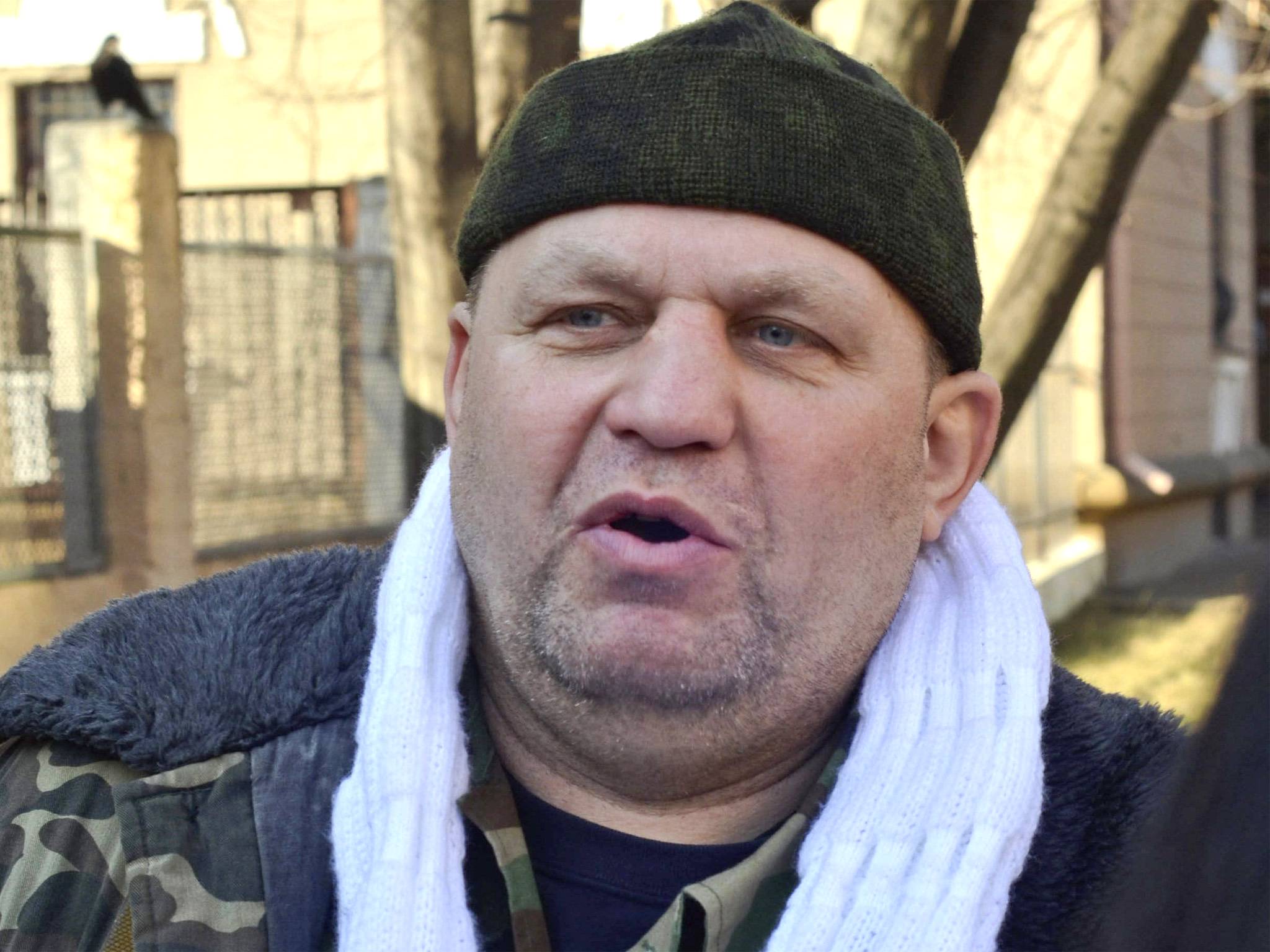Ukraine crisis: Killing of ultra-nationalist leader causes more problems for new government in Kiev
Sashko Bily’s supporters call for retribution after what they claim was a contract killing

A leader of the hard-right movement in Ukraine, charged by the Russians of committing war crimes, has been shot dead by security forces. The killing of Oleksandr Muzychko brought immediate claims of a cover up and demands for retribution by his followers, adding fuel to an already combustible situation.
Sashko Bily, as he was better known, a prominent leader of the Right Sector group, died at Rivne, in the west of the country. The government in Kiev announced that he had opened fire first on 'Special Forces' who had tracked him down to a café. But an MP gave a very different account, claiming that Mr Muzychko been dragged into a car after being stopped on the road; his body found dumped later with his hands tied, 'executed' with two bullets to the heart.
Mr Muzychko was pictured in the Maidan, the centre of protests in the Ukrainian capital, brandishing a Kalashnikov last month. The Kremlin used the images as an example of how “fascists” had taken over the opposition to Viktor Yanukovych before his overthrow. A warrant had been issued for his arrest by authorities in Moscow for alleged torture of captive Russian soldiers during the Chechnya conflict in the 1990s.
The presence of Right Sector members in the Maidan demonstrations, often engaged in acts of violence, had been heavily publicised and the supposed threat they posed to ethnic Russians in the east and south of the country was one of the key reasons used by President Vladimir Putin for military intervention in Crimea.
Dmytro Yarosh, the leader of the Right Sector, has declared that he will be running in the Ukrainian presidential elections on 25 May. He remains, however, an outsider in the race and the acting government in Kiev had repeatedly denied that the group exerted any significant influence in the new political set up.
Deputy interior minister Voldymyr Yevdokimov stressed that Mr Muzychko, despite being a powerful Right Sector chief, had been under investigation for a month for “criminal activities”. A 'Special Forces Unit' from the Sokol area had found him, and three others from “his criminal gang”. But “at the moment of arrest, at shouts of 'Stop! Stop! Police!' he fled, jumping through a window, and opened fire.”
The troops had responded to defend themselves, maintained the minister. “He was still alive as they were arresting him - but then the paramedics, called to the scene, found that he had died.” The three others were being questioned.
The shooting of Mr Muzychko happened just hours after Russian Foreign Minister Sergei Lavrov had held talks with his Ukrainian counterpart Andriy Deshchytsia - their first meeting since Moscow's forces moved into Crimea triggering the ongoing international crisis.
Some Right Sector members saw a conspiracy, with Mr Muzychko being got rid of to placate Moscow; others believed that members of the Kiev government were trying to marginalise the organisation before the election by tying it to criminality. In Rivne, the dead man's colleagues insisted that he was unaware of an investigation and has not been asked to come in for questioning.
Roman Koval, a Right Sector official, pledged that the Interior Minister will be targeted: “We will avenge ourselves on [Interior Minister] Arsen Avakov for the death of our brother. The shooting of Sashko Bily is a contract killing ordered by the minister”.
Some visiting the Maidan, now a shrine to those killed and injured in the protests, feared that President Putin may use outbreaks of strife involving right-wingers as an excuse for further intervention, especially if it happens in the east. “We believe his people may be instigating these things to send in their army and say they are supporting law and order” said Nicolai Borolenko, a 23 year old student who had a rib cracked in clashes with the police. “So it is very important that our own forces control this matter quickly.”
It is far from certain, however, that the Ukrainian government will be able to cope with any extremist nationalist violence while ministers are daily warning that President Putin was preparing to grab another chunk of territory. Its impotence during the seizure of Crimea and the failure to support forces under siege there by the Russians and their separatist supporters cost defence minister Ihor Tenyukh his job.
I and other journalists had witnessed how Ukrainian commanders in Crimea were left to fend for themselves with no instructions from the Ministry of Defence in Kiev. At the end the government ordered the troops to open fire if necessary, only to announce 24 hours later that they would be withdrawn; no withdrawal plan was ever presented.
The most high profile of the Ukrainian commanders to resist the Russians, Colonel Yuli Mamchur, at Belbek military airport, was one of those who had pointed out that he had received no instructions from Kiev. The day the base was stormed by the Kremlin's forces, the commander's wife, Larisa spoke of the anger felt by the troops and their families. “We have been abandoned by the new government in Kiev. All these new ministers have been full of big words, but they simply abandoned us to all the dangers.”
Mr Tenykh told Parliament: “Given that some may not like the actions I take... I will not cling to my post. If the leadership has a different view of developing events and other candidates, I, Acting Defence Minister General Tenyukh, offer my resignation.”
Join our commenting forum
Join thought-provoking conversations, follow other Independent readers and see their replies
Comments